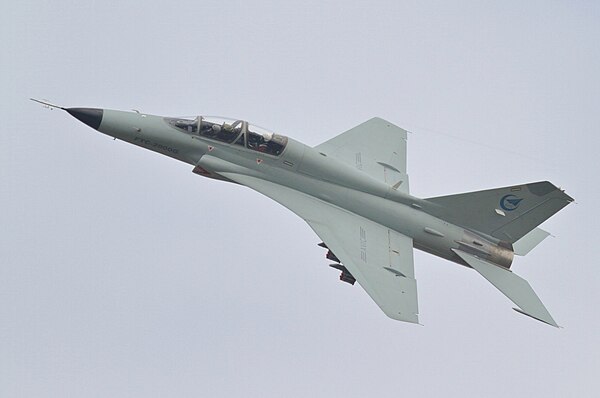What’s behind Chinese continous supply of weapons shipment to Junta’s Army ?

Pic source :Wikipedia
China’s military support for Myanmar’s military junta has continued to escalate, with the recent delivery of six FTC-2000G fighter jets coinciding with intensified airstrikes against ethnic armed groups. This marks a significant expansion of China’s military cooperation with Myanmar, following a meeting between Chinese Foreign Minister Wang Yi and junta leader Min Aung Hlaing.
The FTC-2000G fighter jets, part of a 2020 order delayed by the COVID-19 pandemic, have significantly enhanced the junta’s military capabilities. The versatile FTC-2000G, capable of carrying up to 3 tons of weapons, has strengthened the junta’s military capabilities.This delivery marks a significant expansion of China’s military cooperation with Myanmar’s junta. China has been supplying weapons and ammunition to the junta as it faces growing resistance from ethnic forces.
The fighting in northern Shan State has resulted in substantial losses for the junta, including the loss of towns and key trade routes with China. Deputy leader Soe Win’s recent visit to China is focused on securing additional arms to bolster the junta’s military capabilities.China’s approach to Myanmar is characterized by state-centered diplomacy, prioritizing high-level interactions with the established government despite ongoing instability. This reflects China’s historical preference for engaging with existing regimes rather than opposition groups, as demonstrated by its delayed recognition of the National Transitional Council during the Libyan Civil War. This strategy underscores China’s commitment to maintaining stable relationships even in volatile political environments.
China’s support for the junta has faced criticism from international human rights organizations, who have condemned the junta’s violent crackdown on ethnic minorities. Despite growing international pressure, China has continued to supply weapons and ammunition to the junta, raising concerns about its role in exacerbating the conflict.
China’s economic interests in Myanmar, centered on large-scale infrastructure projects, are increasingly challenged by political instability and the ongoing civil conflict. Despite being Myanmar’s largest investor, China faces setbacks due to decreased border trade and the impact of its own economic slowdown. While China seeks to maintain its influence in Myanmar, its concerns extend beyond economics to safety and crime.
In addition to its economic interests, China is also concerned about the rising threat of online fraud targeting its citizens. Scam centers operating in Myanmar, often run by Chinese-led criminal networks, have thrived since the military coup. China’s government has repeatedly urged the junta to take action against these scams, but with limited success. Initiatives like Operation 1027 aim to dismantle these scam centers and protect Chinese citizens.
China’s relationship with Myanmar is complicated by the junta’s lack of effective control over many regions. Despite this, China maintains ties with the junta due to its control of critical infrastructure, including international airports, seaports, and key economic areas.
As Myanmar prepares for elections in 2025, China’s stance on the political process remains uncertain. While China has expressed interest in influencing the outcome, its neutrality in the ongoing conflict suggests that its primary focus remains on its economic interests. However, the evolving situation on the ground and the potential for increased engagement with the resistance could lead to a shift in China’s approach.







